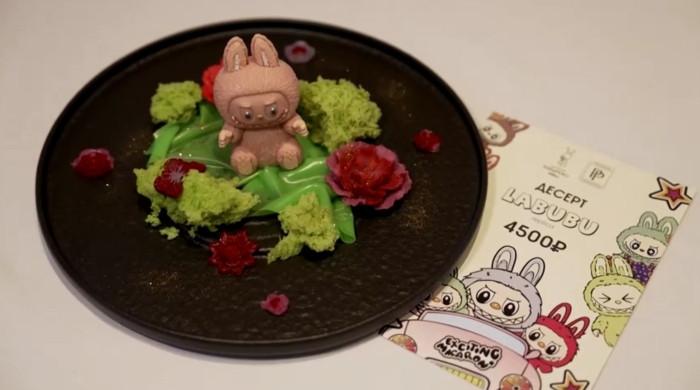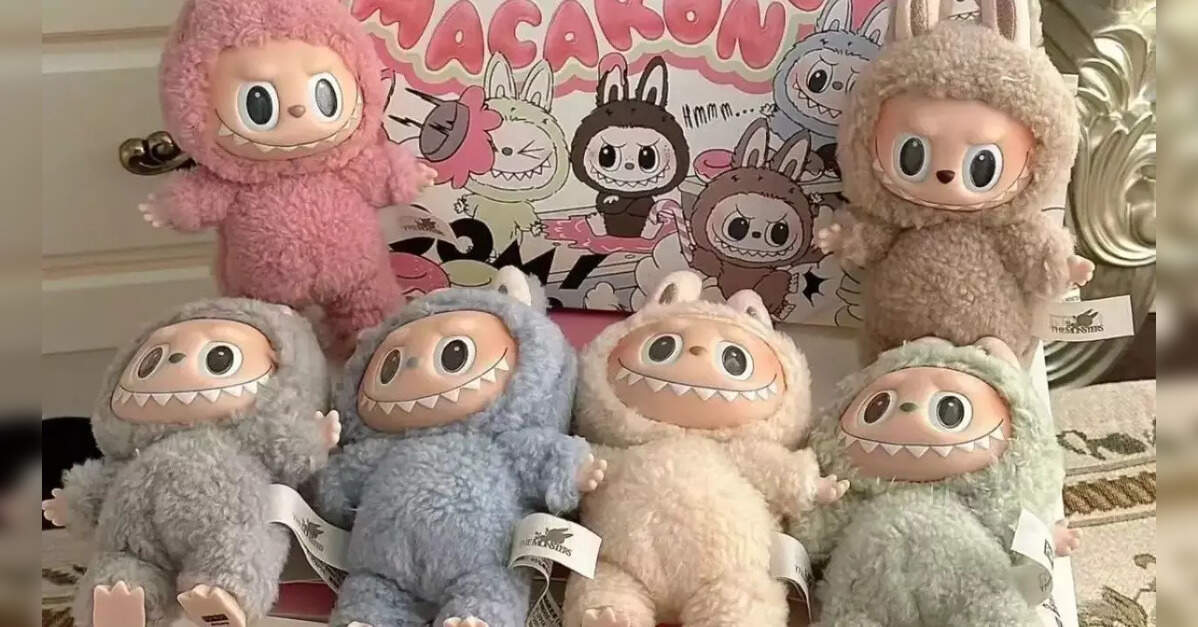Labubu Dolls Skyrocket in Popularity, Becoming Global Trend

Labubu dolls, with their distinctive appearance often described as a blend of adorable, bizarre, and unique, have emerged as a significant global phenomenon. These plush figures, creations of the Chinese toy company Pop Mart, have soared in popularity, capturing the attention of a wide array of fans, from ordinary collectors to international celebrities like Rihanna, Dua Lipa, Kim Kardashian, and Lisa from BLACKPINK. The widespread fascination has led to long queues and eager anticipation in cities ranging from Shanghai to London, sometimes even resulting in fierce competition for these coveted collectibles. This surge in demand has nearly tripled Pop Mart’s profits in the past year and, according to some observers, has even energized Chinese soft power, which faced challenges during the pandemic and amid strained relations with Western countries.
Labubu is not merely a toy but a character from “The Monsters” series, conceived by Hong Kong-born artist Kasing Lung. The name Labubu itself does not carry a specific meaning, but the character has become instantly recognizable. Labubu dolls are characterized by their vinyl faces attached to plush bodies, featuring signature pointy ears, large expressive eyes, and a mischievous grin that distinctively showcases exactly nine teeth. While some find them endearing, the internet remains divided on whether their appearance is adorable or peculiar. According to Pop Mart’s official description, Labubu is depicted as “kind-hearted and always wants to help, but often accidentally achieves the opposite.” The Labubu universe extends beyond the main character, with other popular figures like the tribe leader Zimomo, her boyfriend Tycoco, and her friend Mokoko, all of whom have inspired their own popular dolls across various themed series such as “Big into Energy,” “Have a Seat,” “Exciting Macaron,” and “Fall in Wild.”
Pop Mart’s journey to becoming a global sensation began when entrepreneur Wang Ning opened it as a variety store in Beijing in 2010. The company’s success significantly accelerated with the introduction of “blind boxes” in 2016, a marketing strategy where customers only discover the specific doll they’ve purchased upon opening the package. Pop Mart secured the rights to Labubu in 2019, which further fueled its growth. This success culminated in Pop Mart selling shares on the Hong Kong Stock Exchange in December 2020, with its shares soaring by over 500% in the past year. Today, Pop Mart operates more than 2,000 vending machines, known as “roboshops,” globally, and Labubu dolls are available in physical and virtual stores across over 30 countries, including the US, UK, Australia, and Singapore. Sales from outside mainland China contributed nearly 40% of its total revenue in 2024, though some locations have temporarily paused sales due to overwhelming demand.
The global ascent of Labubu was not an overnight phenomenon; it took a few years for the elfin monsters to break into the mainstream. Their popularity within China surged as the country emerged from the pandemic in late 2022. According to Ashley Dudarenok, founder of China-focused research firm ChoZan, many Chinese people sought emotional escapism post-pandemic, and Labubu’s “charming but chaotic character” embodied an “anti-perfectionism” sentiment. While the vast and competitive Chinese internet produces many viral trends that don't go global, Labubu's appeal successfully spread, first to neighboring Southeast Asia, and then across the world. Affordability also played a crucial role in its widespread adoption, with original prices ranging from C$25 ($18; £14) to C$70, making them accessible collectibles. Despite surging demand driving up prices in the second-hand market, the initial price point was considered acceptable by most.
A major catalyst for Labubu’s international fame was the endorsement by global celebrities. In April 2024, Thai-born K-pop superstar Lisa began posting photos with various Labubu dolls on Instagram, igniting a wave of global interest. This was swiftly followed by other high-profile figures: singer Rihanna was photographed with a Labubu toy clipped to her Louis Vuitton bag in February, influencer Kim Kardashian shared her collection of 10 Labubu dolls with her Instagram followers in April, and former England football captain Sir David Beckham posted a photo with a Labubu doll given to him by his daughter in May. These celebrity endorsements amplified the dolls’ visibility, making them feel ubiquitous in online spaces and increasingly spotted among friends, colleagues, and passersby.
The underlying reason for the Labubu obsession, like most viral trends, remains elusive, often attributed to a complex interplay of timing, taste, and the inherent randomness of the internet. However, Beijing has embraced this global recognition, viewing it as a demonstration of Chinese creativity and cultural appeal. State news agency Xinhua stated that Labubu “shows the appeal of Chinese creativity, quality and culture in a language the world can understand,” presenting a “cool China” to a global audience. This success defies conventional stereotypes of Chinese products being cheap or low-quality and contributes to a broader “soft-power shift” where Chinese products and images are gaining traction among young Westerners, akin to Japan's cultural influence with Pokemon and Nintendo in earlier decades. Companies like BYD and DeepSeek, alongside Labubu, are demonstrating that their quality can transcend geopolitical concerns. The element of surprise inherent in the blind box model also fuels collector obsession, with many fans, like Desmond Tan, actively feeling boxes to increase their chances of finding rare









